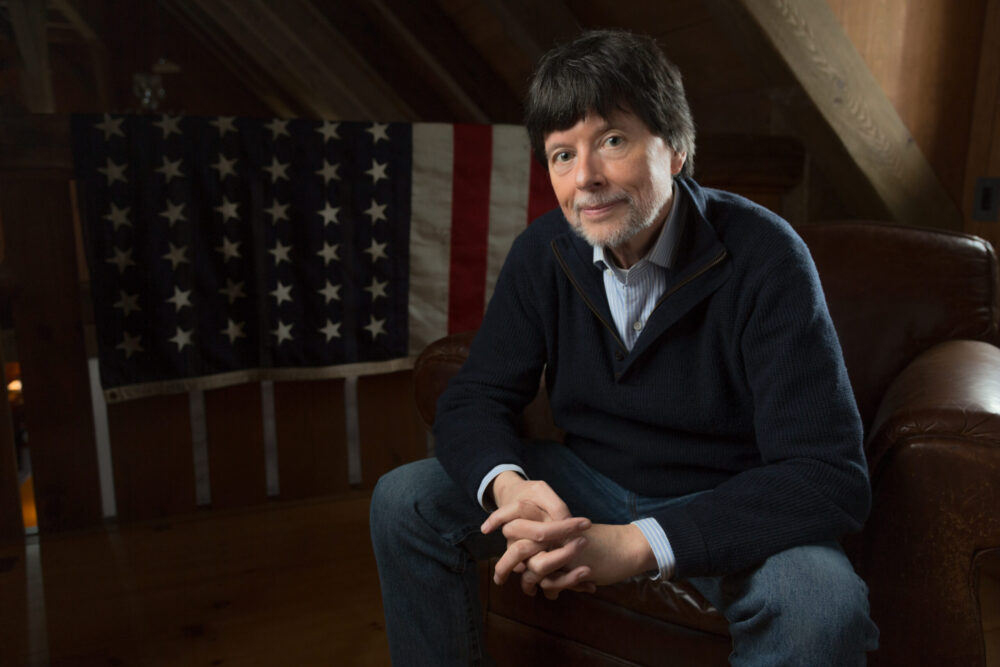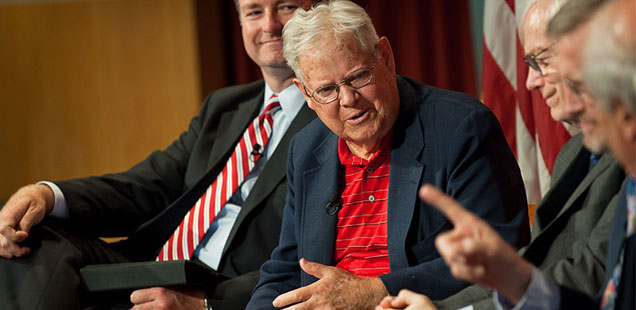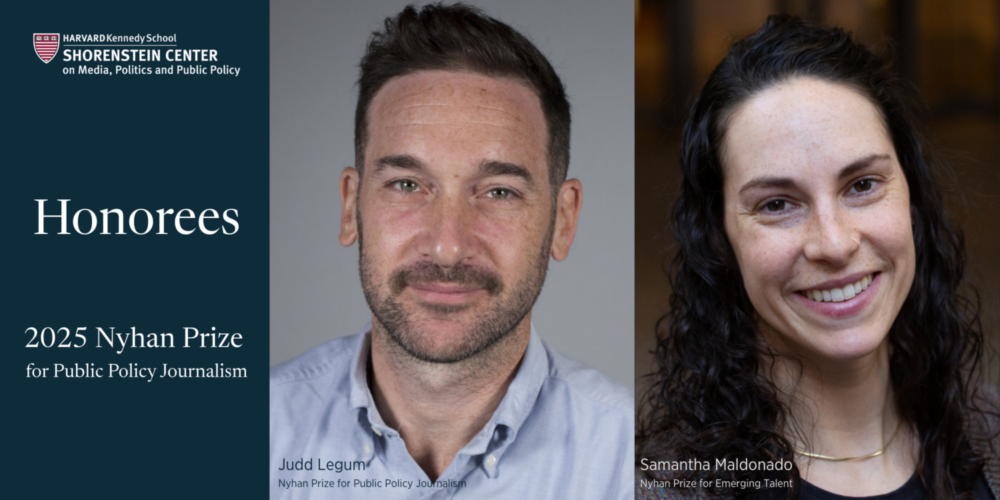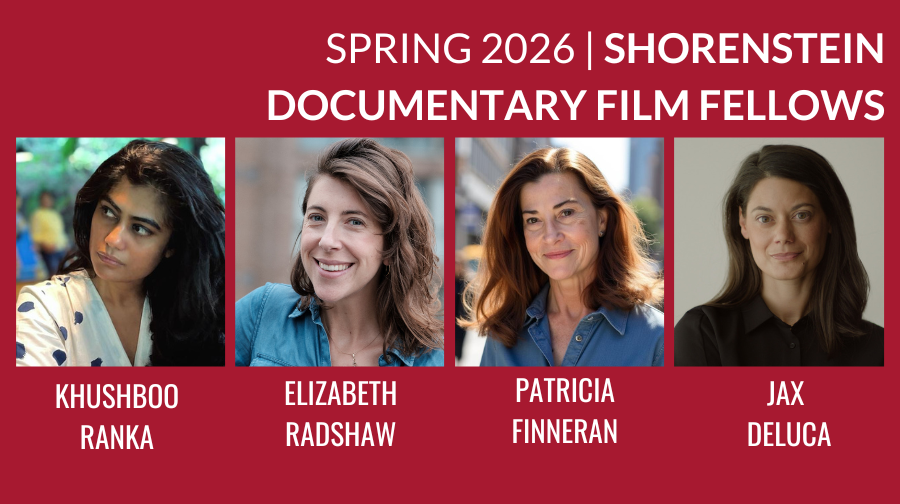
Center News
Ken Burns to give Theodore H. White Lecture on Press and Politics

A memorial service will be held on Saturday, June 3 at 11:00 AM in Memorial Church at Harvard University. The Shorenstein Center and Institute of Politics at Harvard Kennedy School will host a reception following the service.
In Memory of Jonathan Moore (9/10/1932-3/8/2017)
The Shorenstein Center mourns the death of Jonathan Moore, a longtime friend, supporter and early architect of the Center. Jonathan was a member of the Shorenstein Center’s Advisory Board for many years, was an advisor to all of the Center directors, and had an office at the Center as an Associate beginning in 1995.
Jonathan was director of the Institute of Politics (1974-1986) and, under his leadership, the IOP broadened their engagement with the press. But Moore and others recognized that the topic was too important to be adequately addressed as a subsidiary part of the institute, and in 1980, Moore drafted a proposal for a Harvard center on the press, politics and public policy. Dean Graham Allison and Harvard President Derek Bok embraced the proposal, a planning committee was established, and Harvard created a new endowment fund for the Center with a $50,000 transfer from the Institute of Politics, thanks to Jonathan. Jonathan Moore went on to raise significant funding for the Center’s fellowships, seminars, general operating support and professorships and in 1985, the Shorenstein family endowed the center with the name of their daughter, Joan Shorenstein Barone.
Jonathan Moore graduated from Dartmouth College in 1954 and received an MPA from Harvard in 1957. He was in the first class of IOP Fellows. He had a distinguished career in government, beginning as public affairs assistant for USIA in Bombay and Monrovia, eventually becoming U.S. Coordinator and Ambassador-at-Large for Refugee Affairs. He wrote essays and books, including Hard Choices: Moral Dilemmas in Humanitarian Invention, was a sailor and a poet, helped establish the Cape Cod National Seashore Park, and worked for numerous Republicans including George Romney, Eliot Richardson, Leverett Saltonstall and Nelson Rockefeller.
For those at the Shorenstein Center—staff, faculty and fellows—who knew and worked with Jonathan, there was no one more generous and wise, or more decent and beloved.
Survivors include Jonathan’s wife Katie, four children, grandchildren and innumerable friends and admirers around the world.
Read Jonathan Moore’s obituary in The Boston Globe and The New York Times.

Center News

Center News

Center News